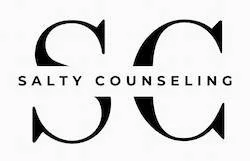When EMDR Doesn’t Work — and It’s Not Your Fault
You finally tried EMDR… but it didn’t help.
Maybe your sessions felt confusing or overwhelming.
Maybe nothing seemed to change — or you even felt worse afterward.
And now you’re wondering if you’re “too broken,” or if EMDR just doesn’t work for you.
Here’s the truth: it’s not your fault — and it doesn’t mean EMDR doesn’t work. Sometimes, it means the therapy wasn’t set up in the right way for your nervous system, or that the therapist missed key pieces in the preparation phase.
Let’s talk about what this really means — and how healing is still possible.
Why EMDR Sometimes Doesn’t “Work”
EMDR (Eye Movement Desensitization and Reprocessing) is one of the most effective trauma therapies available. But like any therapeutic method, it only works when it’s applied correctly and at the right pace for your system (i.e., your brain and body).
If you’ve had a disappointing experience with EMDR, one or more of these factors may have played a role:
1. You weren’t ready to process yet
If your body is still in constant survival mode — anxious, hypervigilant, or disconnected — jumping straight into trauma processing can backfire.
Without enough grounding and stabilization, EMDR can feel like you’re revisiting the trauma without release. It may simply mean your nervous system didn’t yet have the resources or safety it needed to fully process those memories.
That’s why a skilled trauma therapist spends plenty of time preparing your body and mind before moving into the deeper EMDR phases.
2. The therapist moved too fast (or not fast enough)
EMDR isn’t a one-size-fits-all. Some people need to go slowly, with frequent check-ins and breaks. Others need more direct pacing to stay engaged.
When the speed or structure doesn’t fit your nervous system’s rhythm, your brain can’t safely process — and the work stalls out.
A good EMDR therapist will help you co-regulate, track your responses in real time, and adjust as needed.
3. You didn’t feel safe or connected in the relationship with your therapist
If you didn’t fully trust your therapist or didn’t feel seen, it’s nearly impossible to let your defenses relax enough for trauma work to land.
That doesn’t mean you “weren’t open” — it means your system was protecting you.
Safety and connection are everything in trauma healing. Learn more about My Approach.
4. You needed a different kind of trauma therapy first
Sometimes, the missing piece isn’t EMDR itself — it’s what comes before or alongside it.
Somatic therapy, parts work, or Polyvagal-informed approaches can help your nervous system build tolerance and safety before you reprocess trauma memories.
In fact, combining EMDR with somatic or ego state work often creates the lasting change people hoped for all along.
What It Doesn’t Mean
If EMDR didn’t help you before, it doesn’t mean:
You’re too “complex” or “broken.”
You failed therapy.
You can’t heal.
It usually means your body wasn’t ready, the process wasn’t right for your system, or your therapist wasn’t trauma-informed enough to adjust.
Healing is not about following a strict protocol — it’s about listening to your body’s language and creating safety at every step.
How EMDR Can Work When Done Right
When EMDR is done within a safe, attuned, and body-aware framework, it can be life-changing.
Clients often describe feeling lighter, calmer, and more at ease in their own body — not just “managing” symptoms, but actually healing.
At Salty Counseling, EMDR sessions are designed around your unique nervous system:
We spend time building safety and stability first
We use somatic grounding and parts work to prepare for deeper EMDR phases
We move at the pace your system can handle — not faster, not slower
This way, your healing becomes sustainable — not re-traumatizing.
The Bottom Line: It’s Not You — It’s the Process
If EMDR didn’t work for you, it doesn’t mean you’re beyond help.
It means you deserve a therapist who understands your nervous system, goes at your pace, and helps you feel safe enough to heal.
You’re not “too much.”
You just need the right kind of support.
Ready to try again — this time with safety and connection at the center?
Healing is possible — and you don’t have to do it alone.
If you’re ready to explore EMDR or somatic therapy with a trauma specialist in Salt Lake City, let’s talk.

